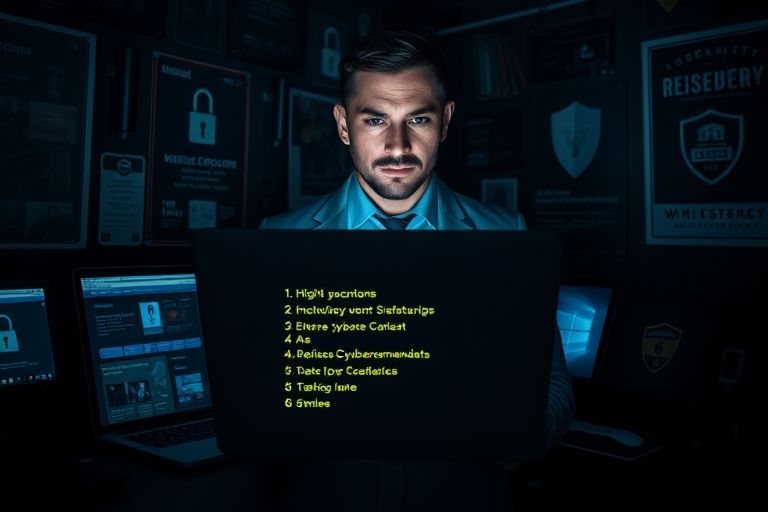
With the rise of digital technology, cybersecurity has become more important than ever. From government agencies to small businesses, everyone is at risk for cyber attacks. However, as an end-user, you can take steps to protect yourself. Here are 10 essential cybersecurity tips:
Your password is the first line of defense against cyber attacks. Use a strong, unique password for each of your accounts. Avoid using personal information (like your name or date of birth) and include a mix of letters, numbers, and symbols.
Good password: "Th3$tr0nGP@$$w0rd"
Two-factor authentication adds an extra layer of security to your accounts. It requires you to enter a code (sent to your phone or email) in addition to your password. This makes it much harder for hackers to gain access to your accounts.
Software updates often include security patches that address vulnerabilities. Keep your operating system, web browser, and other software up-to-date to stay protected.
Antivirus software can detect and remove malware from your computer. Make sure to use reputable antivirus software and keep it updated.
Phishing scams are a common form of cyber attack. They often come in the form of emails or messages that appear to be from a legitimate source (like your bank). The goal is to trick you into giving away personal information. Be cautious when clicking links or downloading attachments in emails, even if they appear to be legitimate.
A VPN encrypts your internet traffic and hides your IP address. This makes it harder for hackers to intercept your data. Consider using a VPN, especially when using public Wi-Fi.
Be careful what you share online, especially on social media. Cyber criminals can use this information to steal your identity, hack your accounts, or even break into your home. Avoid sharing personal information like your phone number, address, or birthdate.
Regularly back up your important data (like photos and documents) to an external hard drive or cloud storage service. This will help protect your data in case of a cyber attack or computer failure.
Make sure to use secure websites (indicated by "https" in the URL) when entering sensitive information like credit card details or passwords. Avoid entering this information on unsecured websites.
Finally, be skeptical of anything that seems too good to be true. Cyber criminals often use social engineering tactics (like pretending to be a bank or government agency) to trick you into giving away personal information. If something seems suspicious, don't take any chances.
Cybersecurity is everyone's responsibility. By following these 10 essential cybersecurity tips, you can protect yourself from cyber attacks and keep your personal information safe.